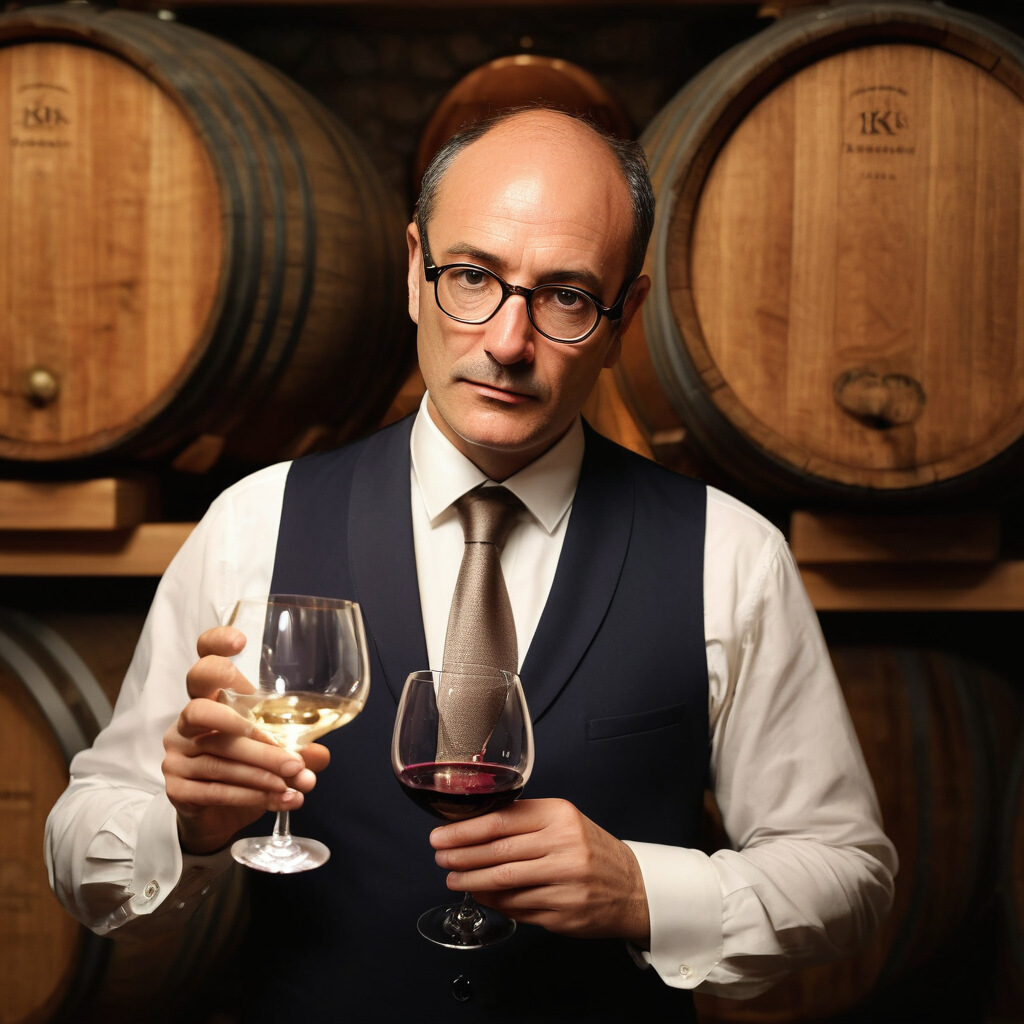David Winston stands as one of the most influential figures in modern Western herbalism. His decades-long dedication to the study, teaching, and clinical application of medicinal plants has reshaped how practitioners understand and use botanical medicine. Unlike many who focus solely on theory or tradition, Winston bridges ethnobotanical knowledge with clinical science, making him a trusted authority among herbalists, naturopaths, and integrative health professionals. His work spans research, education, plant conservation, and hands-on patient care—each area contributing to his reputation as a leading voice in holistic health.
A Legacy Rooted in Tradition and Innovation

Winston’s journey into herbalism began at an early age. Introduced to traditional Cherokee healing practices by his great-great uncle, he immersed himself in the wisdom of Indigenous American herbal traditions. This early exposure laid the foundation for a lifelong commitment to understanding not just the biochemical properties of plants, but their cultural context and energetic actions within the body.
What sets Winston apart is his ability to synthesize diverse systems of knowledge. He integrates Native American herbalism, Traditional Chinese Medicine (TCM), Ayurveda, and Western scientific research into a cohesive framework. Rather than treating herbs as isolated compounds, he emphasizes whole-plant medicine and the importance of synergy between constituents.
“Plants are more than the sum of their chemical parts. Their healing power lies in the complex interplay of constituents—and in the relationship between healer, plant, and patient.” — David Winston
Pioneering Contributions to Herbal Education
One of Winston’s most enduring impacts has been in herbal education. As co-founder of the Center for Herbal Studies and later founder of David Winston’s Center for Herbal Studies, he developed rigorous curricula that combine experiential learning with academic depth. His programs emphasize clinical training, ethical sourcing, and critical thinking—skills often missing in introductory herbal courses.
He also played a key role in shaping professional standards through his involvement with the American Herbalists Guild (AHG). As a founding member and former president, Winston helped establish guidelines for clinical herbalist certification, promoting accountability and excellence in the field.
Advancing Clinical Herbalism Through Research
Winston is widely recognized for elevating the clinical rigor of herbal medicine. In a field often criticized for anecdotal claims, he insists on evidence-based practice while honoring traditional uses. His research focuses on adaptogens—herbs that help the body resist stress—and he was among the first Western herbalists to define and classify them based on both historical use and physiological effects.
In his seminal book *Adaptogens: Herbs for Strength, Stamina, and Stress Relief* (co-authored with Steven Maimes), Winston provides a comprehensive analysis of adaptogenic herbs like ashwagandha, rhodiola, and eleuthero. The book outlines mechanisms of action, contraindications, and dosing strategies grounded in both clinical experience and pharmacological data.
This work has influenced not only herbalists but also researchers and medical professionals seeking natural approaches to managing chronic stress, fatigue, and immune dysfunction.
Key Adaptogenic Herbs According to Winston’s Framework
| Herb | Primary Actions | Traditional System | Clinical Use |
|---|---|---|---|
| Ashwagandha | Calming adaptogen, supports adrenal function | Ayurveda | Chronic stress, insomnia, fatigue |
| Rhodiola | Stimulating adaptogen, enhances mental clarity | European/Russian | Mental exhaustion, low motivation |
| Eleuthero | Immune-modulating, increases endurance | TCM | Recurrent infections, physical overwork |
| Schisandra | Hepatoprotective, Qi tonic | TCM | Liver support, adrenal fatigue |
Commitment to Ethical Herb Sourcing and Conservation
Beyond clinical practice and education, Winston has been a vocal advocate for sustainable herb harvesting and conservation. He co-founded United Plant Savers (UpS) in 1996, an organization dedicated to protecting native medicinal plants from overharvesting and habitat loss.
Recognizing that demand for popular herbs like goldenseal, black cohosh, and American ginseng was threatening wild populations, Winston pushed for cultivation initiatives and public awareness campaigns. UpS now maintains a \"At-Risk\" list that guides ethical purchasing decisions for consumers and manufacturers alike.
His advocacy extends to industry standards. Winston has consulted with supplement companies to promote transparency in labeling, responsible sourcing, and accurate potency claims—efforts that have raised the bar across the herbal products sector.
Real Example: Saving Goldenseal from Overharvesting
In the 1990s, wild goldenseal populations were declining rapidly due to unregulated harvesting for its antimicrobial alkaloids. Winston worked with farmers, researchers, and conservationists to develop cultivation protocols and promote farmed alternatives. Today, most goldenseal in commercial products comes from cultivated sources, thanks in part to these early efforts. This case exemplifies how proactive stewardship can preserve both ecological integrity and access to vital medicines.
Integrating Herbalism into Modern Healthcare
Winston has long championed the integration of herbal medicine into broader healthcare models. He argues that herbs are not replacements for conventional medicine but valuable complements—especially in chronic disease management where pharmaceuticals may have limitations or side effects.
For example, he has researched and written extensively on using hawthorn for cardiovascular support, skullcap for nervous system regulation, and marshmallow root for gastrointestinal healing. His approach emphasizes individualized treatment plans, considering constitution, lifestyle, and underlying imbalances.
Medical professionals increasingly reference his work when exploring integrative options. His articles appear in journals such as *Alternative Therapies in Health and Medicine*, and he frequently lectures at conferences attended by physicians, nurses, and pharmacists.
Step-by-Step Guide: Evaluating an Herb for Clinical Use
- Review traditional uses across cultures to identify consistent patterns of action.
- Examine phytochemistry to understand active constituents and potential interactions.
- Assess clinical evidence, including human trials, case studies, and practitioner reports.
- Consider safety profile, including contraindications, dosage ranges, and long-term use data.
- Evaluate sustainability—ensure the herb is ethically sourced and not endangered.
- Apply holistically within the context of the patient’s overall health picture.
Frequently Asked Questions
What makes David Winston different from other herbalists?
Winston uniquely combines deep respect for indigenous traditions with a disciplined, clinical approach. While many herbalists lean heavily on either tradition or science, he integrates both, ensuring treatments are both culturally informed and physiologically sound. His emphasis on adaptogens and nervine tonics has also shaped modern herbal practice in tangible ways.
Are David Winston’s herbal formulations available commercially?
Yes. He is the formulator behind several products sold through Herbalist & Alchemist, a company he founded. These include specialized blends for stress resilience, immune support, and women’s health, all crafted according to his principles of efficacy, purity, and synergy.
Can I study directly under David Winston?
While he no longer offers apprenticeships as he once did, Winston continues to teach through workshops, online courses, and intensive training programs via his center. Many of his students have gone on to become respected herbalists themselves, continuing his educational legacy.
Expert Insight: A Voice of Wisdom in Holistic Health
“He doesn’t just teach herbs—he teaches how to think like a clinician. That’s what makes David Winston a mentor to generations of healers.” — Dr. Aviva Romm, MD, herbalist and author
Final Thoughts: Why David Winston Matters
David Winston’s fame rests not on self-promotion, but on substance—decades of meticulous work that have elevated the entire field of herbal medicine. From pioneering adaptogen research to conserving endangered plants, from training skilled practitioners to influencing healthcare policy, his contributions are both wide-ranging and deeply impactful.
More than a teacher or author, Winston embodies the role of the modern herbalist: grounded in tradition, engaged with science, and committed to service. As interest in natural health grows, his model of thoughtful, evidence-informed, and ethically rooted practice becomes ever more essential.









 浙公网安备
33010002000092号
浙公网安备
33010002000092号 浙B2-20120091-4
浙B2-20120091-4
Comments
No comments yet. Why don't you start the discussion?